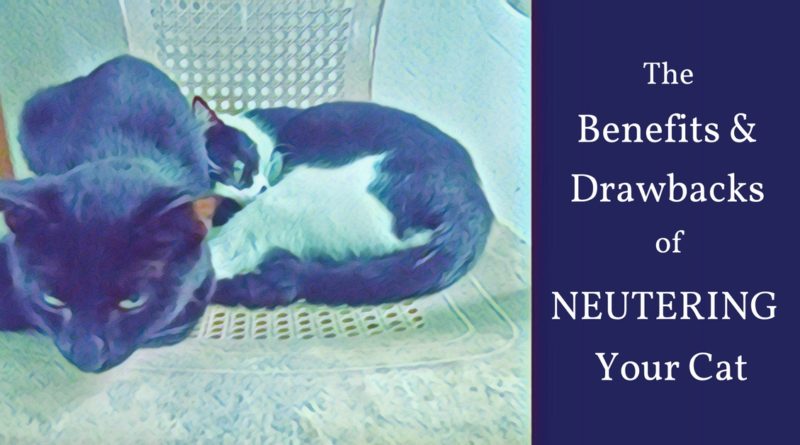The Benefits And Drawbacks Of Neutering Your Cat
It is often a distinctive desire to take care of your cat when it comes to a decision of whether or not to have it neutered. While the instinct for any cat owner is the safety of his/her feline friend, there are also other issues concerning the process of cat neutering. But to arrive at a sound decision, here are the advantages and disadvantages of neutering your cat.
PROS OF CAT NEUTERING
- When you neuter or spay your cat, it prevents your pet from getting pregnant and having babies that will be costly to keep.
- Neutering or spaying your cat will help in keeping your pet healthy. Through the removal of the testes in male cats, the uterus and ovaries in female cats, the body gets more energized and is able to handle diseases that may occur as the cat gets older.
- Neutering/spaying cats reduce the risks of having uterine cancer and other health issues affecting the animal.
- When you cat has undergone neutering, it shows a calmer and quieter behavior. It doesn’t get attracted to catcalls and no longer has the desire to find a mating partner (this applies to both male and female cats). Moreover, neutered cats become gentler and more affectionate, making it easier for you to get along with your pet.
- The best time to get your cat neutered or spayed is before the cat reaches the age of puberty. The surgical procedure will differ based upon if you have a male or female cat. The neutering must be done by a licensed professional veterinarian.
- For those cat owners who are considering having their male or female cat neutered, it’s important to note that they don’t need to pay so much for the service. And while the cost for neutering will vary by location, the average cost for neutering a cat ranges from $30 to $100.
CONS OF CAT NEUTERING
- The neutering procedure uses anesthesia that makes the cat unconscious, sleepy, and numb to pain. This drug, however, has side effects that may pose health risks on the cat, according to Pet Health Network.
- When cats have undergone neutering or spaying, some of them gain weight. Because intact animals have an intense mating desire, it’s typical for them to use their energy in looking and copulating their mates. But since their sex organs have been removed, they no longer desire to mate, which means calories are not burned as much as before.
- Once you decide to neuter your cat, you have to expect that he or she can no longer reproduce or aid in the reproduction of kittens. It is irreversible, so you have to be sure with your decision.
POINTS TO REMEMBER
As previously said, neutering your pet cat is a personal decision, yet it poses a big responsibility on your part. As such, doing your own research about neutering will definitely help. You will need to understand the entire process of getting your cat neutered. Aside from that, you should be able to find necessary ways of preparing your cat and keeping it comfortable during the whole procedure.
But it is always best to speak with a licensed veterinarian before making a decision. Talk about your concerns and the issues that you have regarding your cat. Vets have a better understanding of what’s appropriate for the cat. And while you’re at it, don’t hesitate to raise questions regarding the whole surgical process as well as post-surgery care tips.




